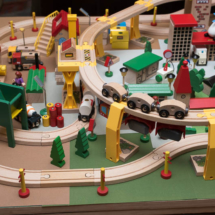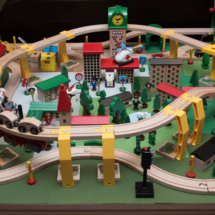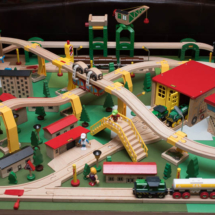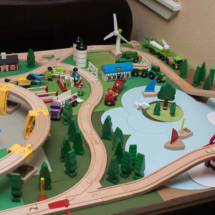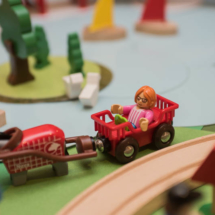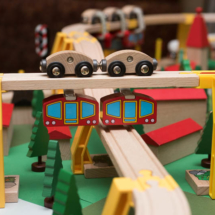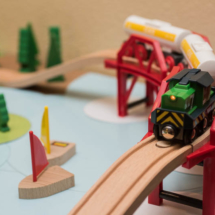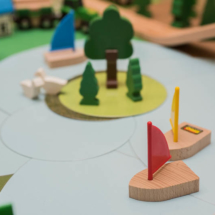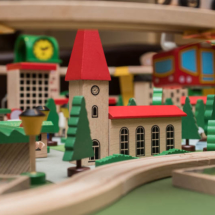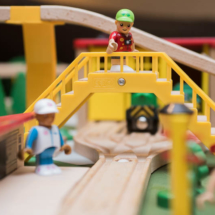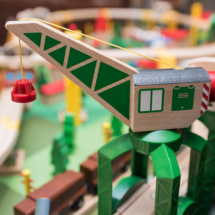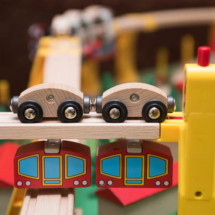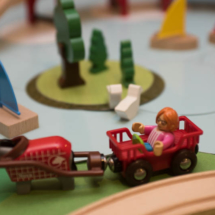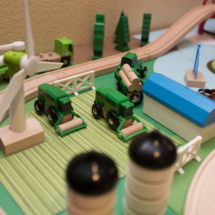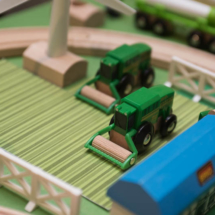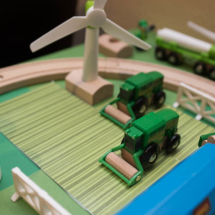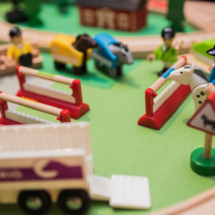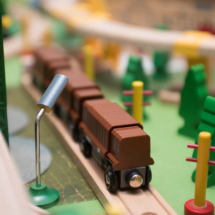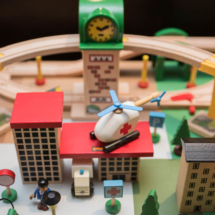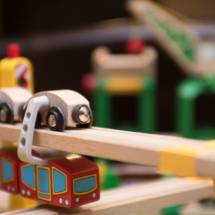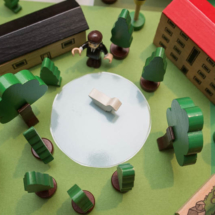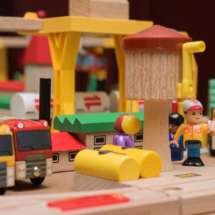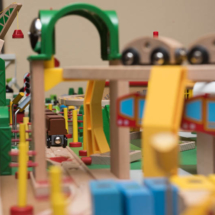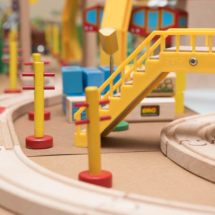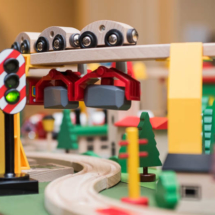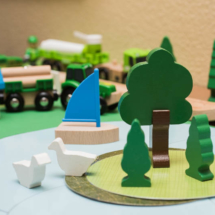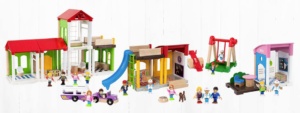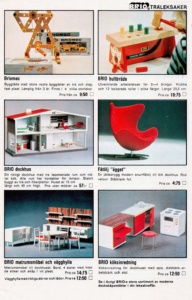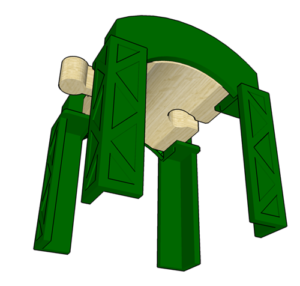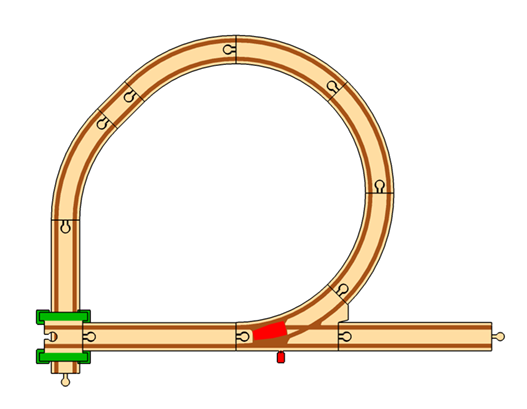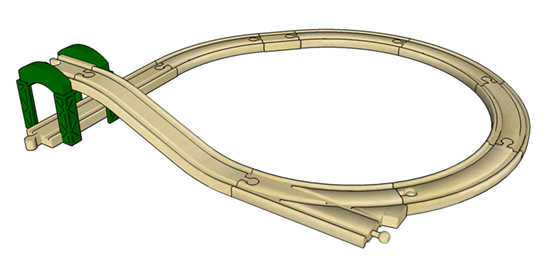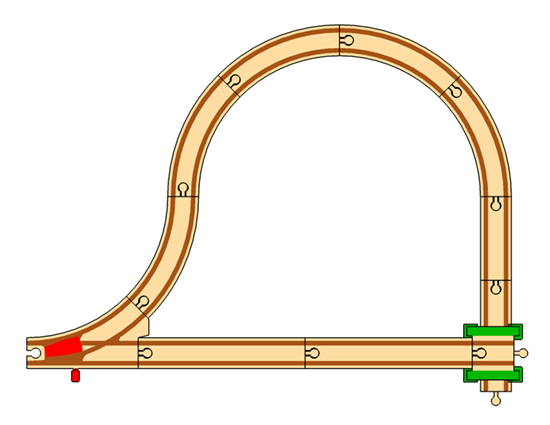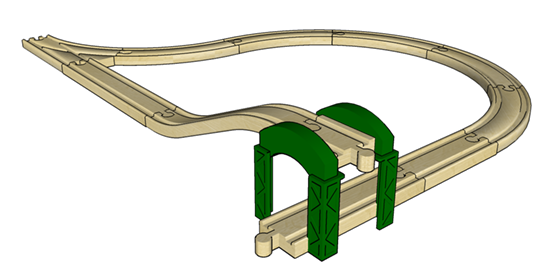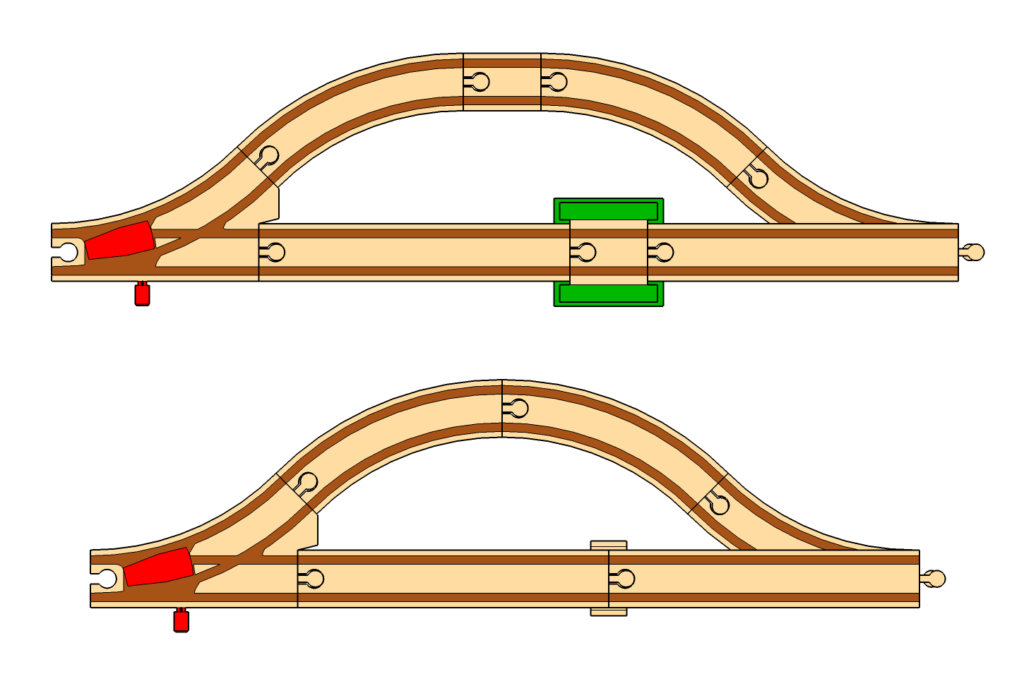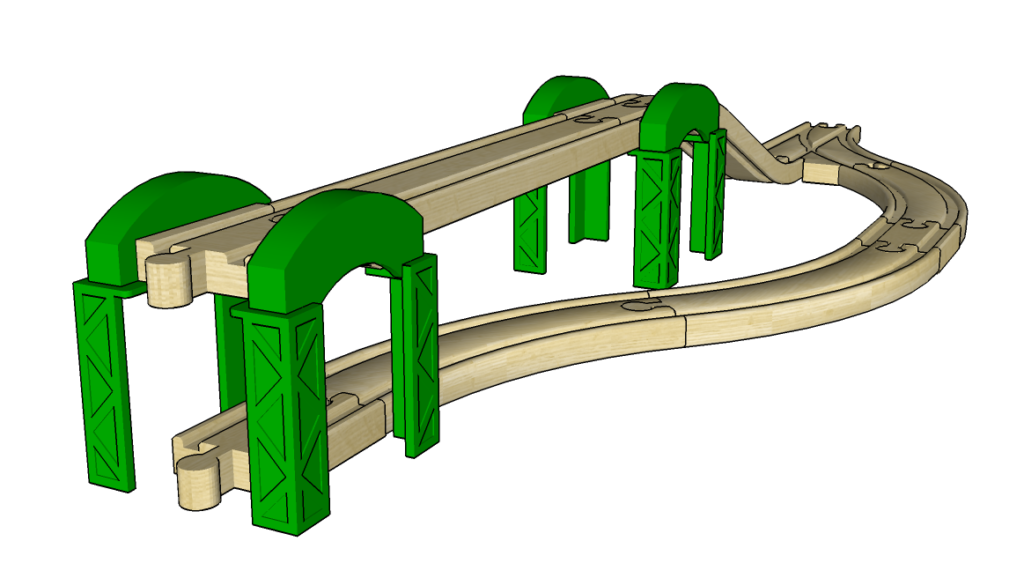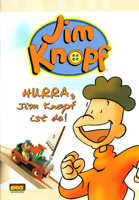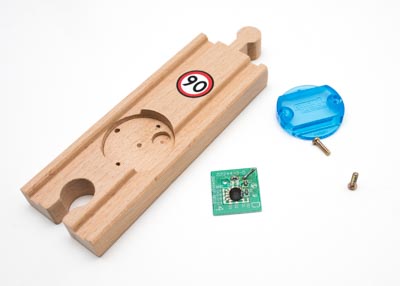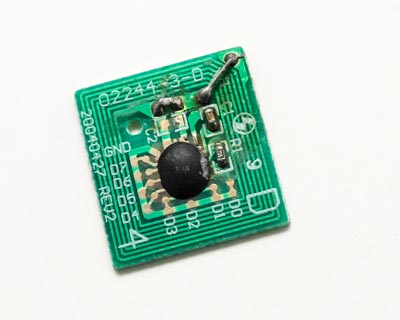The most elusive of BRIO’s track pieces, A3 showed up in catalogs from 1998 to 2000 as BRIO 33323 Middle Straight, but I have never seen a packaged set even in international markets. Individual track pieces do pop up occasionally as part of other sets, but I only know of a few sources.
BRIO 33105 Cargo Deluxe Set
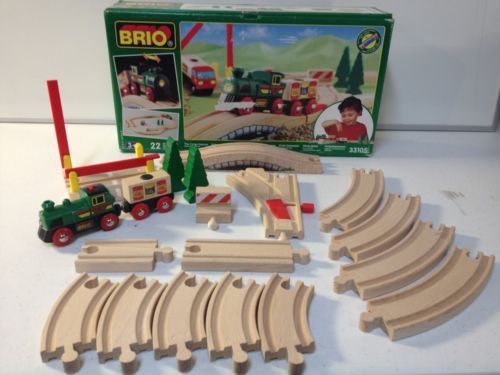
There’s a single piece of A3 track, shown in the image above (the left-most of the two straights; the one on the right is a piece of A1). This starter set comes with a couple of other interesting pieces, such as the D-sized hump and a mechanical switch. You can find it on eBay periodically.
BRIO Network 33294 Track Pack
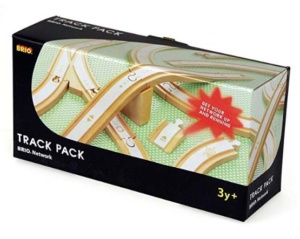 Another source is the BRIO Network line. The BRIO #33294 Track Pack, a track expansion pack with the Network paint, includes one A3 piece. The paint actually makes A3 track easy to identify: each track piece has its own paint scheme, and the A3 piece depicts a simple email (letter) icon in the center.
Another source is the BRIO Network line. The BRIO #33294 Track Pack, a track expansion pack with the Network paint, includes one A3 piece. The paint actually makes A3 track easy to identify: each track piece has its own paint scheme, and the A3 piece depicts a simple email (letter) icon in the center.
In the photo below, the A3 piece is the second straight from the left.
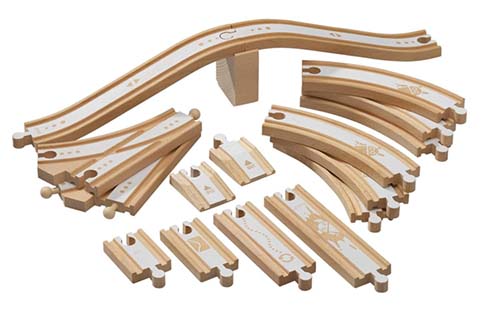 Alas, this track pack is hard to find since it wasn’t widely sold. More common are the various BRIO network starter sets, some of which were non-catalog items. These tend to come with one or two A3 pieces. The easy way to spot them is, again, to look at the paint on the pieces in the set.
Alas, this track pack is hard to find since it wasn’t widely sold. More common are the various BRIO network starter sets, some of which were non-catalog items. These tend to come with one or two A3 pieces. The easy way to spot them is, again, to look at the paint on the pieces in the set.
BRIO Network Play Table
There were different incarnations of the BRIO network play table, and at least one of these is comes with one A3 track.
BRIO 33284 Network Educational Set
This set comes with two. It did not appear in catalogs
BRIO 33008 Zoo Garden Set
Many thanks to Kenny for this addition. The #33008 Zoo Garden Set includes a single piece of A3 track, which you can see next to the dolphin tank in the layout image.
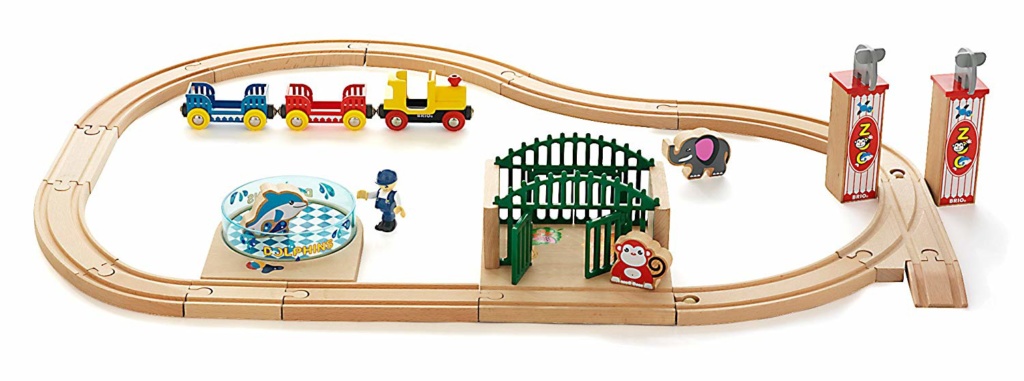
It appeared in catalogs in 2007 and 2008, and is a bit more rare than the #33053 Wooden Zoo Set (which has a similar layout but does not include A3).
BRIO 33051 Track & Stack City Set
Thanks to use u/Yiroon on Reddit for this addition. The #33051 Track & Stack City Set includes one piece of A3 track, shown to the left of the switch track in the layout photo.

Two more sources of A3 that come from u/Fred_Pelhay on Reddit:
BRIO 33123 Record and Play Engineer’s Set
This came from u/Fred_Pelhay on Reddit. The is a blue treasure chest set that was sold in the mid-late 2000’s and contains two pieces of A3.
BRIO 33149 Battery-Powered Engine with Exciting Crossing
Also from u/Fred_Pelhay on Reddit. This set may have been exclusive to Germany. It has one piece of A3.
BRIO 33147 Engineer’s Play Set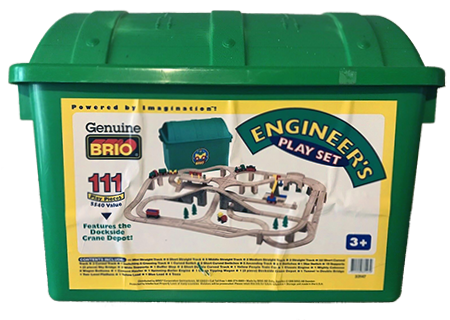
Courtesy of u/Yiroon on reddit, this green treasure chest set was sold from 1999 through the very early 2000’s and came with a whipping five pieces of A3.
